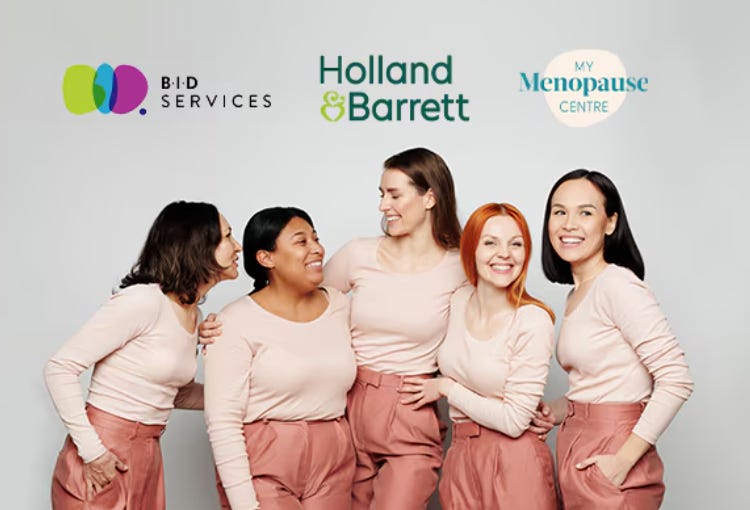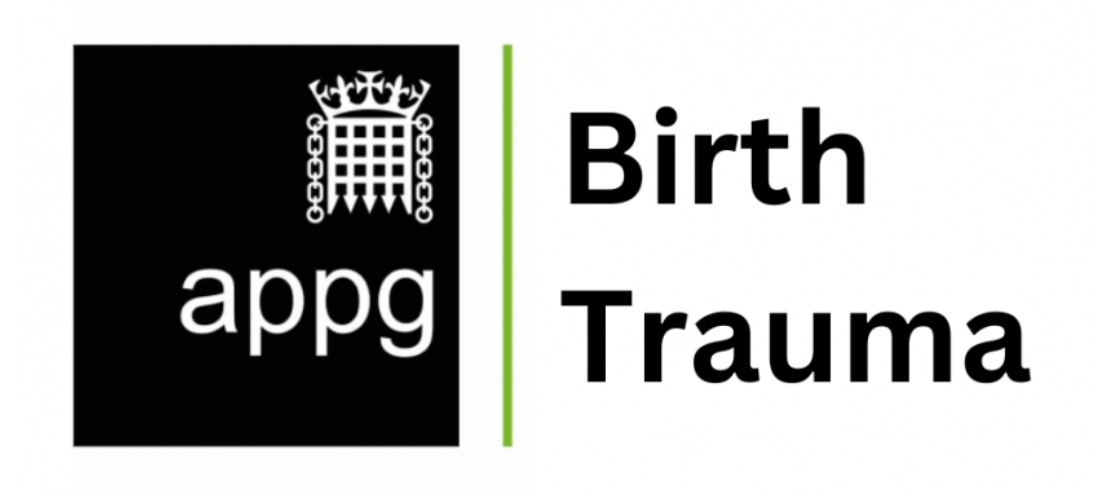Issue 53: Dementia's cost | May Health raises $25m for PCOS ovarian therapy | Menopause sign language | Evie smart ring closer to medical device status
+ lots more in your weekly round-up of women's health and FemTech news
Welcome to issue #53 of FutureFemHealth - your weekly news about women’s health innovation and FemTech (w/c 13 May 2024).
🌟 Coming up today we’ve got:
📈 The economic cost of dementia
💰 May Health raises $25m to develop ovarian therapy for women with PCOS
👩🏽💻 First British Sign Language video guides on menopause
💍 Evie smart ring edges closer to medical device status
Got news to share from the world of FemTech and women’s health innovation? Let me know at anna@futurefemhealth.com
📈 The true cost of dementia - and the innovations helping to bring much-needed support
Dementia has a disproportionate impact on women - about two in three people living with dementia are women and it’s been the leading cause of death in women in the UK since 2011.
Yet, like many areas of women’s health it is underserved and under-researched.
And that might sometimes go under the radar since dementia isn’t always seen or known about as a women’s health issue.
According to Alzheimer’s Society just 1.4% of dementia healthcare costs are currently spent on diagnosis and treatment.
And this early diagnosis is critical for getting the right support and treatment. It can also avoid catastrophic care costs further down the line.
Jennifer Keen, Head of Policy at Alzheimer’s Society, told FutureFemHealth that:
"One in three people with dementia do not have a diagnosis. If we don’t address diagnosis, we have no hope of addressing the major dementia challenges we face and reducing the cost to the health service and wider economy.”
These costs are quite staggering. This week, as part of Dementia Action Week, new research from Alzheimer’s Society has estimated dementia now costs the economy £42 billion a year - much of that shouldered by families providing care - and could rise to £90 billion a year unless urgent action is taken. (Full report here)
So where might innovation help?
‘Fastball’ - a test to detect Alzheimer’s earlier - raised £1.5m in July last year for its assessment that looks for subtle changes in a patient’s brain waves.
There are advances in blood tests too. In April this year, Mayo Clinic unveiled a promising noninvasive blood test diagnostic to support early, accurate detection.
Start-ups are also exploring how to delay or prevent dementia. According to French / UK-based Five Lives, lifestyle changes could delay or prevent 40% of dementia cases. It raised €3.7m in 2022 for its Alzheimer’s prevention ‘brain game’ app and is working to clinically validate its product.
And there are promising drugs in development for Alzheimer’s, such as Eli Lilly’s Donanemab immunotherapy medicine. It has been found to significantly slow the progress of disease - although full approvals for use are still ongoing.
Following its research, Alzheimer’s Society now calls for the UK Government to make dementia a priority, with more investment needed into dementia research for diagnosis and treatment.
Of course, this is an issue that extends beyond the UK. Consultancy firm Frost & Sullivan has identified senior care dementia as a $3 trillion burden to the global economy and one of the top four burdens we need to solve for in women’s health.
It’s also worth considering that as the global population ages dementia care intersects with many other healthcare needs for older women. We’ll need more ways to help people live independently, technologies to support with monitoring, and more access to care too.
Any advances in the area of dementia then, will help millions of sufferers, and their families, worldwide. But it would also be significant progress for women’s health in particular.
💰 Funding, deals and investment news
📌 FRANCE: May Health raises $25m to develop ovarian therapy for women with PCOS. Polycystic ovary syndrome (PCOS) affects 10% of women and its the leading cause of female infertility. Medical device start-up May Health is developing ‘Ovarian Rebalancing therapy’ - a one-time procedure designed to activate natural ovulation and overcome infertility. This Series B funding - co-led by Bpifrance and Trill Impact - will advance May’s pivotal REBALANCE study to evaluate the Ovarian Rebalancing therapy. (Read more: FutureFemHealth)
📌 FRANCE: Samsung Medison to acquire AI fetal ultrasound company Sonio. With a mission of preventing late, inaccurate or missed diagnoses of pregnancy complications, Sonio’s AI-enabled software is a great complement to Samsung Medison’s leading ultrasound devices. The deal now has to be approved by the French Ministry of Economy and Finance. Sonio will remain an independent company with a HQ in France. (Source: Samsung)
🌟 More news from this week
📌 UK: Holland & Barrett develops first official guide for British Sign Language and the menopause. Around 188,000 people use British Sign Language (BSL) as their first language - yet there’s no agreed guidance on the signs to describe menopause in the UK. No wonder then that 90% of deaf women have no awareness of menopause treatment options and how they work. Retailer Holland & Barrett has partnered with My Menopause Centre and charity BID Services to create the first agreed BSL resource for women experiencing menopause. Housed on the H&B menopause hub, it includes videos, advice and guidance on signs. (Read more: FutureFemHealth)
📌 Female-focused smart ring ‘Evie med’ edges closer to medical device status. The much-hyped Evie Ring aims to help women make lifestyle changes and mitigate the risks of chronic diseases through actionable insights from biometric information. Developers Movano have now submitted clinical trial results and proof of enhanced medical usability to the US FDA as they continue to pursue ‘medical device status’ for the ring’s pulse oximeter (a measure of blood oxygen saturation). A decision is expected in July. (Read more: FutureFemHealth)
📌 Oura recommits to women’s health. Just as Evie Ring pursues medical device status, its main competitor the Oura ring has spoken about its renewed focus on women’s health. After revealing a new pregnancy insights feature in March, it also continues to invest in research across life stages. Product manager Dr Neta Gotlieb has said that Oura aims to be a “critical partner for women to close this information gap and become experts in themselves.” (Source: Athletechnews)
📌 US: Women in US can now collect their own sample for cervical cancer screening. The human papillomavirus (HPV) is the cause of virtually all cervical cancer so HPV testing is key for prevention. The FDA has now approved medical tech company BD’s self-collection option for use in a healthcare setting, including non-traditional locations such as a retail pharmacy or mobile clinic. Roche has been approved too. Looking ahead, regular readers might remember that FemTech start-up Teal Health is progressing FDA approval for at-home self-collection which would open up access even further. (Read more: FutureFemHealth)
📌 US: Times Square ad featuring pregnant author taken down. Scantily clad underwear adverts are perfectly acceptable, but in another example of blatant double standards in advertising, start-up Swehl saw its billboard for lactation cookies (featuring a breastfeeding - but not nude - mother) removed by Clear Channel Outdoor and deemed ‘inappropriate’. (Source: New York Post)
📌 Misleading online ads a risk to women, medics fear. Women are being ‘targeted and exploited by a rise in poorly evidenced, alternative treatments online as NHS services struggle to keep up with demand’, doctors and campaigners have said. Menopause supplements and hormone-balancing supplements are some of the examples cited. (Source: BBC)
📄 Govt & policy news
📌 UK: Good maternity care ‘exception rather than rule’ birth trauma inquiry finds. Spearheaded by MP Theo Clarke, the Birth Trauma Inquiry has considered evidence from 1,300 women. It found ‘shockingly poor quality’ maternity services ‘frequently tolerated as normal’ - causing traumatic experiences and injuries for women and families with often long-lasting impacts. A total of 12 policy recommendations have now been made (full report here) - including an ask for a maternity commissioner and standardised post-birth services. Yet the overriding sentiment this week from social media posts about this inquiry seems to be a hope that the reliving of all this trauma by so many contributors musn’t be in vain. We look to a new Government now to see if they will take action. (Source: Sky News)
📌 UK: Government needs to ‘get with it’ and use TikTok and Instagram for health advice, says Women’s Health Ambassador. Who wants to tell Dame Lesley Regan that sharing health education about periods, prolapse and breast cancer on social media isn’t as easy as it sounds? (Source: Daily Mail)
✅ Jobs
📌 UK: Head of Brand, Hertility Health
📌 UK: Marketing Executive, Unfabled
📌 Stockhom / fully remote: Customer Support Advocate, Natural Cycles
📌 US: Director, Digital Strategy and Activation Lead, Elinzanetant, Bayer
📌 US: Content Marketing Intern, Hue
📌 US: Freelance Health writer/editor, Hey Jane
That’s all for now, see you next time,
Anna






